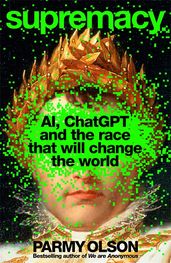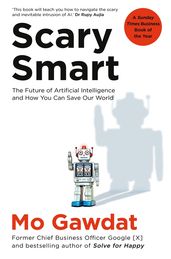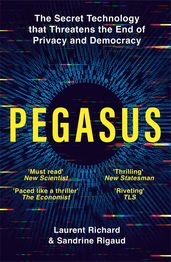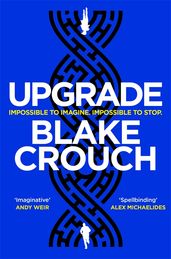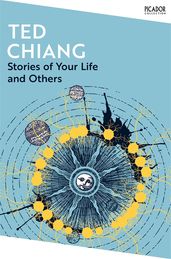Books on artificial intelligence: your reading list
Everyone's talking about it, now time to read about it. Parmy Olson, tech journalist and author of Supremacy, introduces our essential list of books on AI.

It might seem counterintuitive to pick up something as archaic as a book to understand artificial intelligence, but there’s no better way to get AI than with stories – and the stories behind AI’s development are often gripping, filled with crazy people embroiled in high-stakes drama. That’s what lured me to write Supremacy, about the quest by two men to build AI systems that were smarter than humans. Sam Altman and Demis Hassabis grew up on opposite sides off the ocean with personalities as different as chalk and cheese, but both wanted to build godlike AI that could cure disease or create wealth for everyone.
They inspired devotion from the world’s smartest scientists, but their humanitarian vision veered off course. Sam and Demis became fierce rivals and aligned themselves with tech monopolies who alone had the money to help them build such powerful systems. A small group of female researchers fought back, warning that bigger AI models came with more risks, but few listened.
The story of AI is a warning of Silicon Valley’s empty promises and Big Tech’s unstoppable control of technology that will transform our world. Here are some excellent books, both fiction and non-fiction, that explore those themes and more.
Non-fiction books to help understand AI
Supremacy
by Parmy Olson
In Supremacy, award-winning journalist Parmy Olson takes readers deep into the battle between two of the world’s tech giants – Microsoft and Google – as they vie for dominance in the race to develop the most powerful artificial intelligence. We follow the founders of OpenAI and DeepMind as they navigate the ethical dilemmas, financial pressures, and the looming dangers of AI technology. What begins as a quest to solve humanity's greatest challenges soon morphs into a fierce competition, where the stakes are nothing less than the future of the world as we know it, raising critical questions about the role of technology in our lives.
Code Dependent
by Madhumita Murgia
Shortlisted for the Women’s Prize for Non-Fiction 2024, Code Dependent, delivers a powerful investigation into how artificial intelligence is reshaping our lives in ways both seen and unseen. Madhumita Murgia, AI editor for the Financial Times, moves beyond the tech hubs of Silicon Valley and brings to light the voices of ordinary people. From eroding personal agency to challenging our very notion of free will, this book delves into the profound and often unsettling effects of AI on individuals, communities, and society as a whole. Code Dependent serves as a crucial wake-up call, urging us to confront the ways AI is redefining what it means to be human and to consider the consequences if we fail to reclaim our sense of agency.
Scary Smart
by Mo Gawdat
As AI becomes increasingly intelligent and integrated into our daily routines, it also poses unprecedented risks to our humanity. Scary Smart isn’t aimed at the engineers or policymakers, but at you – the individual – because, as Mo Gawdat argues, we all play a crucial role in shaping the future of AI. He explores how AI, despite its advanced capabilities, often falters due to the human flaws embedded within its code and provides an accessible blueprint for how we can steer development towards a future that preserves our humanity and safeguards our planet.
Sex Robots & Vegan Meat
by Jenny Kleeman
Imagine a world where you can have the perfect sexual relationship without compromise, enjoy meat without harming animals, have babies without pregnancy, and choose the moment of a painless death. It sounds like a utopia, but in Sex Robots & Vegan Meat, Jenny Kleeman asks the critical question: What if these so-called solutions strip away the very essence of our humanity? She explores the real-world implications of these technologies, challenging readers to consider whether solving humanity's biggest problems might come at too high a cost. This book is an eye-opening look at a future that’s already arriving.
Coders
by Clive Thompson
From the revolution on Twitter to the romance on Tinder, coders have constructed the very framework of modern life. Clive Thompson's Coders explores who these powerful individuals are, how they think, and the profound impact they have on society. Through a blend of historical insight and contemporary analysis, he examines the morality, politics, and cultural implications of code, highlighting the surprising origins of programming, beginning with brilliant women who laid the foundation for the field but were later erased from its history. Coders offers a crucial perspective on the ethics and influence of the people who engineer our digital reality.
Pegasus
by Laurent Richard
In Pegasus, journalists Laurent Richard and Sandrine Rigaud expose the terrifying reality of the world’s most powerful cyber-surveillance tool. Developed by the NSO Group in Israel, Pegasus is marketed as a defense against terrorism, but its reach goes much further. Utilising cutting-edge artificial intelligence, Pegasus allows repressive regimes to spy on thousands of innocent people, from human rights defenders to journalists, tracking their every move and accessing their private communications. Richard and Rigaud’s revelations, brought to light through an international consortium of journalists, show how Pegasus has become a chilling new tool in the global fight for power.
Fiction books to help understand AI
Upgrade
by Blake Crouch
Logan Ramsay's life takes a dramatic turn when he discovers that his genes have been hacked, giving him enhanced abilities – sharper concentration, faster processing, and deeper insights. But this isn’t a natural evolution; it's a targeted upgrade, part of a terrifying plan to spread this genetic enhancement across the globe. Now, with the fate of humanity hanging in the balance, Logan may be the only one capable of stopping the spread of this upgrade. Blake Crouch's Upgrade is a gripping, thought-provoking novel that challenges readers to consider the boundaries of human potential and the ethical dilemmas of artificial enhancement.
Stories of Your Life and Others
by Ted Chiang
In his acclaimed debut collection Stories of Your Life and Others, Ted Chiang masterfully weaves together human emotion with scientific rationalism across eight captivating tales. Each story is a journey into the unknown, from the construction of a Babylonian tower reaching the heavens to a world where angelic visitations are both miraculous and menacing. Chiang’s stories delve into the complexities of neural modifications that alter perceptions of beauty and an alien language that redefines our understanding of time and reality to ultimately challenge readers to rethink the universe and our place within it.
